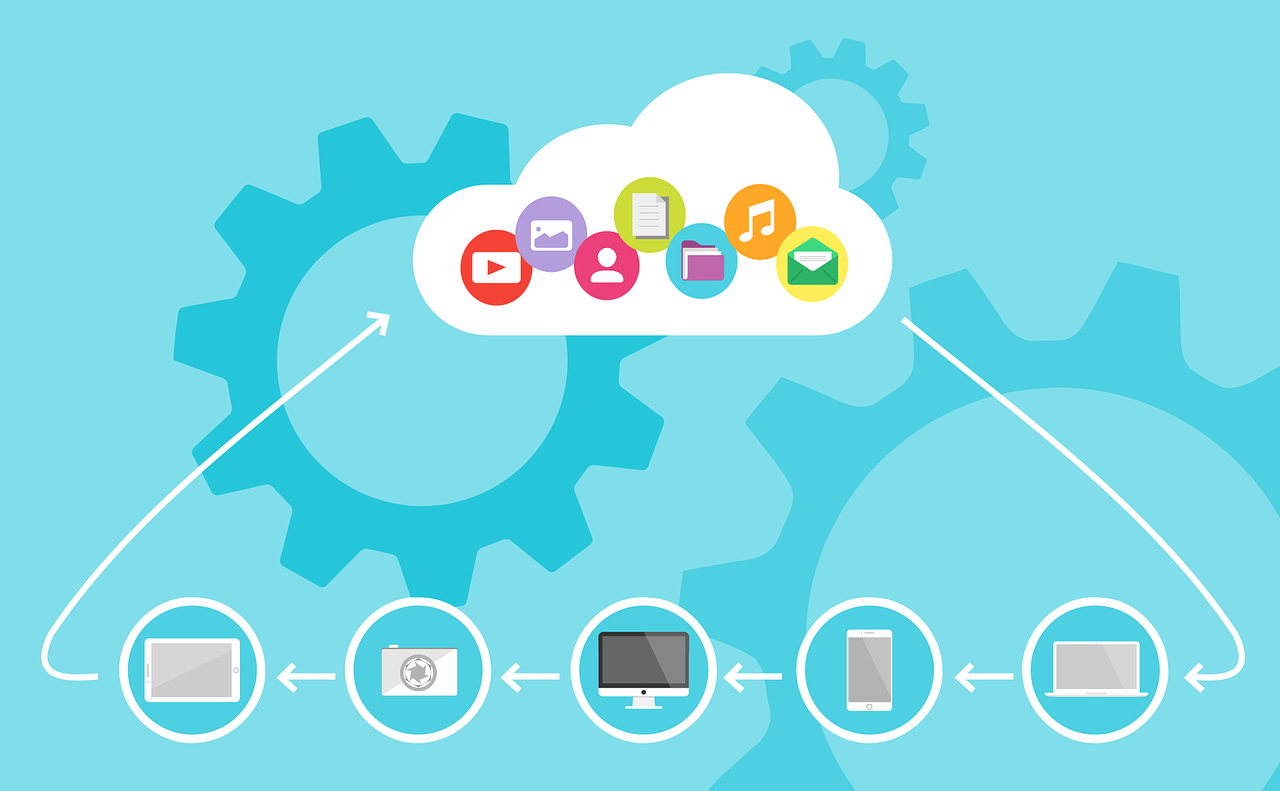
Table of Contents
When it comes to creating privacy online, a proxy is an excellent way of doing so. HTTP and HTTPS proxies are popular, but so is a SOCKS5 proxy. In fact, SOCKS5 proxies are more useful in many situations due to the technology they use and other factors.
To get a better feel for SOCKS5 proxy, it helps to compare it to HTTP and HTTPS proxies.
Introduction: What Is Socks5?
 Before getting into a comparison, take some time to better understand SOCKS5. SOCKS is a type of internet protocol that sends network packets from the server to the client and vice versa via a proxy server. SOCKS5 is an even more secure version that adds authentication that ensures only users with authorization can access the given server.
Before getting into a comparison, take some time to better understand SOCKS5. SOCKS is a type of internet protocol that sends network packets from the server to the client and vice versa via a proxy server. SOCKS5 is an even more secure version that adds authentication that ensures only users with authorization can access the given server.
Many experts consider SOCKS5 the most flexible server protocol due to its inability to differentiate the types of network traffic, such as HTTP for web browsing, FTP for torrent files, and SMTP for email.
It’s important to note that while SOCKS5 is a proxy server to connect your device to the internet, it doesn’t include traffic encryption. As such, SOCKS5 doesn’t deliver the added security that some other solutions do.
History of SOCKS proxy
SOCKS5 evolved from SOCKS, one of the most popular methods of enjoying secure remote access, particularly for administrators of Unix systems. At this point, SOCKS delivered secure SSH Gateways that had access control and logging. Back then, however, SOCKS clients were somewhat limited and tended to be expensive with licensing on a per-client basis.
Over the years, those issues have been overcome. Now, SOCKS is a popular solution for authenticating protocols that can’t otherwise be authenticated and for passing the defaulting routing of the internal network.
SOCKS5 Applications
There are many applications for using a SOCKS5 proxy server, including torrenting and P2P as it will mask the IP address. SOCKS5 can also help users bypass firewalls and sensors based on IPs, such as websites that are blocked within certain regions.
SOCKS5 Proxy vs. HTTP and HTTPS Proxy

SOCKS5 proxies, HTTP proxies, and HTTPS proxies are all methods of changing your IP address by acting as an intermediary, connecting users with the destination servers. HTTP and HTTPS proxies are specifically designed for use when browsing the web. A SOCKS proxy delivers all data to a chosen destination server in the form of a client, making it the most anonymous.
These three are the most commonly used proxies, which is why it’s so important to take a closer look at how they compare.
All three have fast loading and cache pages. HTTPS and SOCKS both have support for an HTTPS (SSL) connection, but HTTP doesn’t. Of the three, only SOCKS is completely anonymous.
HTTP Proxies
HTTP proxies tend to be the most widely used. The main goal of an HTTP proxy is to organize programs and browsers with the TCP protocol. With an HTTP proxy, you can cache downloaded files to improve the website speed, restrict access to particular pages (such as social media on a work network), filter out data (such as advertisements that slow down loading speeds), limit the speed of connection, and keep logs as a way to monitor user traffic.
HTTPS Proxies
An HTTPS proxy is nearly identical to an HTTP proxy. The “S” stands for “secure” and indicates it supports an SSL connection. You’d use an HTTPS proxy when you need to send sensitive information. If you used a conventional HTTP proxy, all the information sent via the connection could be intercepted at the proxy or lower. But with HTTPS, traffic is encrypted for resistance to algorithm cracking.
SOCKS Proxies
As mentioned, SOCKS is considered the most advanced protocol for data transfer, and it was developed for programs that don’t directly support a proxy. Over the years, SOCKS has evolved. By SOCKS4’s arrival, the proxy was able to support a TCP connection. SOCKS5 improves on this by supporting TCP and UDP, as well as remote DNS-queries and authorization by password and login. While HTTP proxies require extra steps for anonymity, all SOCKS servers are already anonymous. This is because the SOCKS server transmits information in the purest form.
Comparing How They Work
To get a better idea of how SOCKS5 differs from HTTP and HTTPS, consider how each works.
With an HTTP proxy, the browser or program will send a request to the proxy server to open the specific URL. The proxy server receives this data from the URL and then sends that data to the browser.
With an HTTPS proxy, the proxy server will connect with the resource and encrypts your traffic. This means that there’s no way to discover the information that passed through the proxy server. It’s important to note that HTTPS proxies don’t actually participate in the encryption and decryption; the proxy just passively transfers the encrypted data. This allows for the transferring of nearly any TCP protocol.
By contrast, SOCKS transmits the information in a pure form and never sends information related to the IP address. When you use a SOCKS5 proxy, the website can’t tell that you did so. The website connection will be fully transparent, just like it would without the proxy.
It’s also noteworthy that SOCKS will understand and interpret network traffic passing between the server and the client. An HTTP proxy doesn’t do this. As a result, you can only use an HTTP proxy for HTTP traffic. However, a SOCKS5 proxy can work in more situations.
What Is Supported
You have likely noticed a key difference between a SOCKS5 proxy server and an HTTP proxy is what types of information you can use it with. HTTP and HTTPS proxies are specifically designed for HTTP (TCP) data. This means that they won’t support the UDP protocol.
By contrast, even a free SOCKS5 proxy will support TCP, UDP, and more. In fact, the fact that SOCKS5 protocol doesn’t penetrate data means you can use it with any kind of connection, including POP3 and HTTP. In other words, there are no compatibility problems with SOCKS.
Encryption vs. Speed

Private SOCKS5 proxies
As mentioned, SOCKS5 doesn’t include encryption, which some may see as a disadvantage. HTTPS includes encryption, but HTTP doesn’t. While that is a small advantage for HTTPS, you must remember that it comes with a compromise. Anytime that encryption is involved, the processing times will increase. The lack of encryption with SOCKS5 increases its speed.
There are also several other factors that contribute to a SOCKS5 proxy server being faster than most HTTPS and HTTP proxies. The ability to support UDP and TCP transfer protocols means SOCKS5 can work with the protocol that the client intended. It also becomes possible to fully utilize DHT, maximizing the download speeds thanks to the connection to the maximum peers.
The speeds associated with SOCKS5 are also quicker since these proxies won’t rewrite a data packet header, which is something HTTP proxies do. That reduces the risk of data packets being mislabeled or misrouted, which would slow the process down.
Anonymity
As a rule, you also tend to get more anonymity when using SOCKS5 compared to HTTP and HTTPS proxies. This is particularly true if you decide to buy a SOCKS5 proxy. In that case, you can find a non-logging version. These allow for maximum anonymity and minimize the risk of your online actions being traced.
Difference Between Free SOCKS5 vs. Private SOCKS5 Proxy
As you begin looking at your options for a SOCKS5 proxy server, you will notice there are both free and private options. It should come as no surprise that when you buy a private SOCKS5 proxy, it will have more features. Some people may feel they’ll be fine with a free SOCKS5 proxy. This is almost always a mistake since everyone can harness the unique benefits of a private proxy. Opting for a private SOCKS5 proxy does mean you have to pay for it. However, the small charge is worth it for the enhanced speed, server response time, and other factors.
Packages
A paid or private SOCKS5 proxy will give you the choice of packages that can meet your specific needs. For example, you can control the efficiency of the information caching, speed, and server response time.
With a free SOCKS5 proxy, you just get when the proxy gives you, whether that meets your needs, which it likely won’t.
Uptime
Paid SOCKS5 servers also have the advantage of a more consistent uptime with fewer connection failures since you’re paying for a service and the proxy provider wants satisfied customers.
Anonymity
Some people are concerned that a paid proxy will share your information when requested by a legal body. However, this should not be a problem. Plus, you’ll still have much more anonymity with a paid proxy than a free one.
After all, there is always a very high risk that the person offering a free SOCKS5 proxy has an ulterior motive. They may be a hacker looking to steal valuable information. If this is the case, they only need you to connect to the proxy for seconds to get what they need.
Speed
A further disadvantage of free proxies comes from the fact that when a SOCKS5 proxy server is free, it will be more popular. With more people accessing the server, this can reduce the clarity of the signal as well as the efficiency. In the case of downloading files, this can lead to longer delays.
Data Protection
You should also keep in mind that when you use a free SOCKS5 proxy, you don’t know what the server will do with your data. As such, most experts suggest avoiding these free servers when accessing websites that require registration since the data becomes easy to steal. If you plan to conduct transactions or access websites that contain sensitive data, it’s smarter to use a private SOCKS5 proxy.
Conclusion
It really doesn’t make sense to switch between a paid and free proxy while browsing. So, it’s much more convenient to just stick to a private one. Paying a little upfront will be worth it to prevent hackers from stealing your private information.






